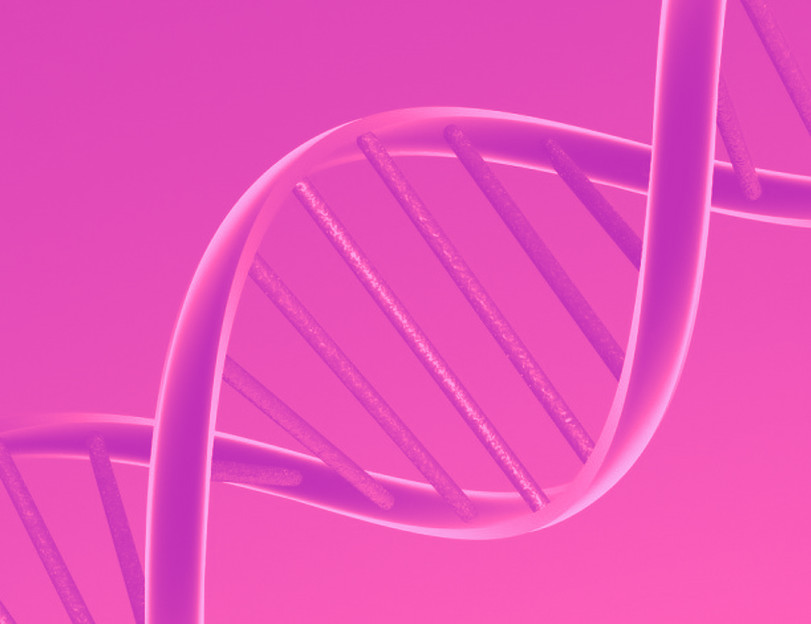Is breast cancer a white women’s issue? At least for cancers with a genetic component,((A BRCA mutation is a mutation in either of the BRCA1 or BRCA2 genes, which are tumor suppressor genes. Individuals with a mutation in either gene have a significantly increased risk for breast and ovarian cancer.)) a good portion of perception and even medicine focus on white or Jewish women exclusively. Google searches for BRCA1 and BRCA2 in news show few, if any, photos of women of color. In the past few years New York Magazine, Cosmopolitian, Glamour, and Self have all featured first person narratives on dealing with BRCA mutations written by white or Jewish women. The world’s most famous BRCA carrier—Angelina Jolie—is white. Most recently the New York Times published an op/ed by the author Elizabeth Wurtzel that called for all women of Ashkenazi Jewish descent to consider getting tested for BRCA mutations. Two major memoirs on discovering and dealing with a BRCA mutation, Pretty Is What Changes and Pandora’s DNA, are written by a Jewish woman and a white woman respectively.
A recent study from the H. Lee Moffitt Cancer & Research Institute, entitled A High Frequency of BRCA Mutations in Young Black Women With Breast Cancer Residing in Florida, challenges this perspective. The study suggests the need for increasing screening and awareness about BRCA testing in the African-American population. Breast cancer–even breast cancer caused by a BRCA mutation–is a black women’s issue too.
According to the study, one in 53 African-American women in the United States will develop breast cancer by the age of 50, compared with one in 48 non-Hispanic white (“NHW”) women. These are already similar incidence rates. However one in 278 African-American women will die of breast cancer by age 50 compared with one in 476 NHW women. Additionally, among patients under age 50, the ten-year survival rate is 64% for African-American women compared with 81% for NHW women.
Tuya Pal, the principal researcher for the Moffitt Center’s study, explained to me that the goal of the study was to see if genetic mutations could account for the aforementioned racial disparities. “In the United States, non-Hispanic White women have the highest overall incident rate of breast cancer,” Pal told me. “However, when you only examine women under the age of 50, African-American women are the most likely to be diagnosed with breast cancer.”
Pal also notes that African-American women are more likely to have triple-negative breast cancer, which is less responsive to traditional therapies. “One of the hallmark features of a BRCA mutation is early onset of breast cancer, and most BRCA carriers have triple-negative cancer so this led us to believe that something was happening at the genetic level.”
Participants in the study were black women under the age of 50 who were given free access to genetic testing and counseling. 12.4% of women found mutations in either BRCA1 or BRCA2. The research team was surprised by these results. Pal explained: “About six percent of non-Hispanic white women have BRCA mutations. So we were expecting to see a similar or lower rate in African-American women. The fact that the incidence rate was 100% more than what we expected was stunning.”
This study also reflected that African-American women are eager to take advantage of genetic counseling and testing when it’s offered. “There is a general conception on the literature that African-American women are not interested in undergoing genetic testing,” Pal stated. However, the vast majority of women were approached were eager to access these services.“
The study concludes with the recommendation that BRCA testing be conducted in all African-American women with invasive breast cancer under the age of 50, regardless of family history: “One thing we observed in the study is that 41% of the women who had a BRCA mutation did not have a family history of breast or ovarian cancer. So we recommended broader testing guidelines because the data suggests that basing referrals for genetic testing around family history will exclude a population that should be getting genetic testing.”
Given those levels of genetic mutation in the African-American population, the importance of genetic testing and counseling is clear. BRCA 1 and 2 mutations confer a 60-70% lifetime risk for developing breast cancer, as well as an above-average lifetime risk for ovarian cancer. However, an earlier study by the same research team at the Moffitt Center found that African-American women are less likely to be referred to by a healthcare provider for genetic testing even when they meet the current national guidelines for referral to a genetic counselor.
To date, the majority of advances in breast cancer awareness and research have been unequally distributed to white women. White women have a 90 percent five-year breast cancer survival rate, while black women’s five-year survival rate is about 79 percent, similar to white women’s survival rates in the 1970s, before several major medical breakthroughs in treatment. Based on the above findings, securing equal access to genetic counseling and testing for black women represents an opportunity to begin to tackle this disparity. Given the disproportionate impact of breast cancer on black women, targeted awareness campaigns about issues such as the risk factors for carrying a BRCA mutation can become another facet of movements for Black lives.

